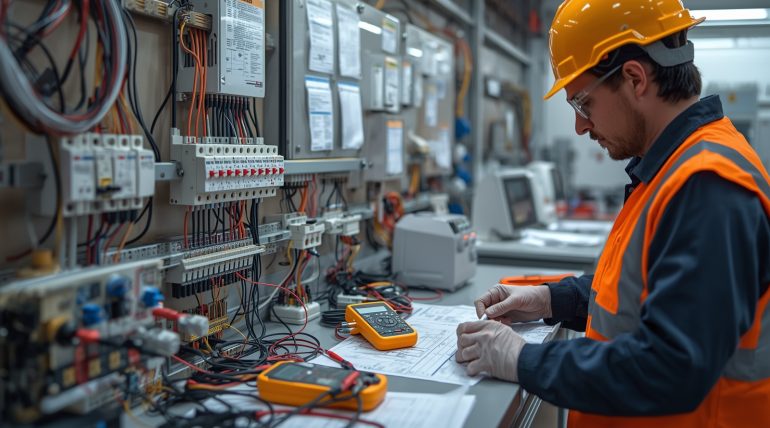
Electrical Product Testing – A Complete Guide for Manufacturers
Electrical product testing is an important process that ensures products are safe, reliable, and ready for use in homes, offices, industries, and commercial spaces. Every electrical product must meet specific national and international safety standards before it reaches customers. Manufacturers who follow proper testing procedures can prevent product failures, reduce risks, and improve brand trust. This guide explains what electrical product testing is, why it matters, and how it benefits manufacturers.
What is Electrical Product Testing?
Electrical product testing is the process of checking electrical appliances, devices, and components to ensure they meet safety, performance, and quality standards. These tests are done using specialized equipment inside a certified lab or a well-equipped factory. Testing helps verify that the product is safe to operate, does not cause electric shock, does not overheat, and works properly under different conditions.
Why Electrical Product Testing is Important
Electrical product testing reduces the chances of short circuits, fire hazards, and electrical accidents. It helps manufacturers detect issues early and avoid costly product recalls. Tested products gain customer trust because they prove the product is safe and approved. Testing is also mandatory for many products under BIS, IEC, and other standards. Companies looking to participate in government projects or large tenders are often required to submit tested and certified products.
Products That Require Electrical Testing
Almost all electrical and electronic items need testing. This includes LED lights, MCBs, RCCBs, switches, fans, adapters, cables, chargers, motors, small appliances, power supplies, home electrical devices, and industrial equipment. Products used for safety, such as switchgear and control devices, require even more rigorous testing to meet mandatory standards.
Types of Electrical Product Testing
There are several types of electrical tests manufacturers must perform. These include safety testing, high voltage testing, insulation resistance testing, performance testing, load testing, temperature rise testing, endurance testing, and IP rating tests. Each test helps ensure the product performs safely under real use conditions.
Key Requirements for Electrical Product Testing
Manufacturers need proper laboratory equipment, calibrated measuring devices, trained staff, and documented procedures to perform accurate testing. Test records must be maintained for quality control and certification purposes. Products must follow relevant standards such as IS, IEC, or other global norms. If the product is under mandatory certification, testing must be done in a BIS-recognized lab.
Benefits of Electrical Product Testing
Testing improves product reliability, increases customer satisfaction, lowers risks of failure, and boosts brand reputation. It helps manufacturers comply with regulations, prevents penalties, and ensures products meet market expectations. Certified and tested products are more likely to get approval from buyers, distributors, and government bodies.
How Pritomax Testing and Compliance Helps
Pritomax Testing and Compliance provides complete support for electrical product testing. We help manufacturers understand required standards, prepare their products, coordinate testing, and meet all compliance guidelines. Our expert team ensures your product passes all necessary quality and safety checks smoothly and efficiently.
About Us
Pritomax Testing and Compliance specializes in product testing, inspection, certification, and regulatory approvals. We help manufacturers meet national and international standards with confidence and reliability.



